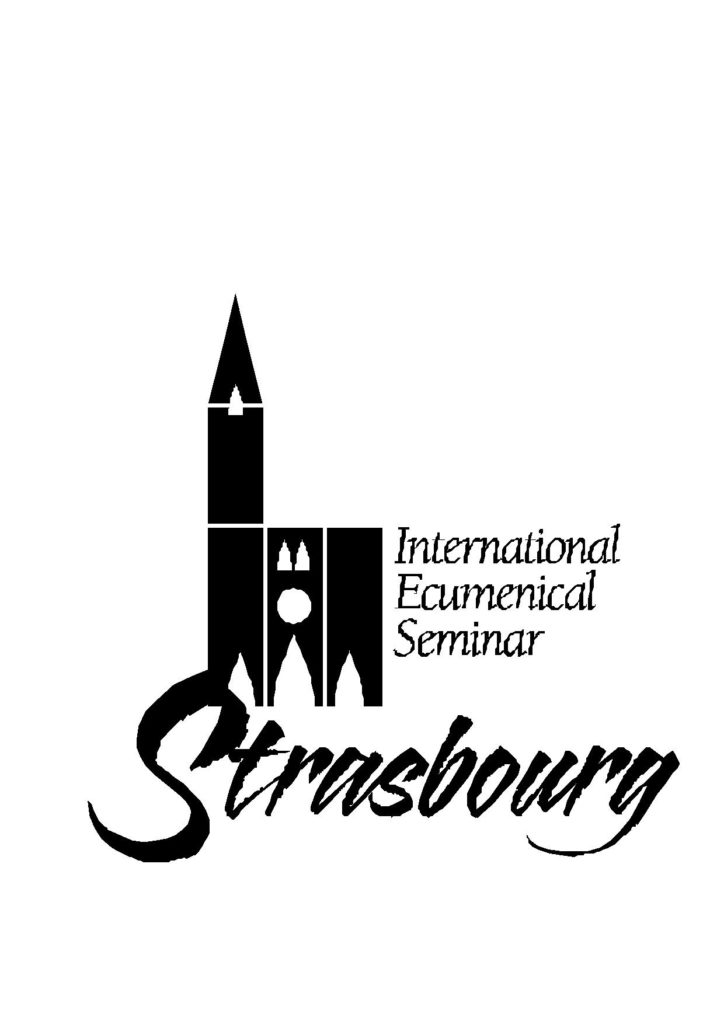
Dates: July 5 – 12, 2023, in Strasbourg.
In the Apostles‘ Creed, we confess that we believe in the “communion of saints.” But we also speak of a „communion of churches.“ What this communion is based on and what it consists of, how it is realized and lived – this is a fundamental question of the ecumenical movement. It is a question because the churches give different answers to this question, not all of which are compatible with each other. And it is fundamental because it is about the goal of the ecumenical movement. There are countless communities who call themselves „churches“ and who, thinking about themselves, claim that they belong to the one body of Christ. But what do they have to do with each other? What connects them to each other? When churches are at odds with each other, but also when they live indifferently side by side, there is a contradiction between their belief in the one body of Christ and the experienced diversity of churches. In the 20th century, which is considered the „century of ecumenism,“ more churches have come into being than ever before in the history of Christianity. Is there any point in asking about the communion of churches? The seminar will address both traditional and new answers to the question of the communion of churches.
In the seminar, a „map“ is first spread out, which makes visible the colorful and large variety of churches and their distribution in the year 2023. This is followed by a look at the global church about 1700 years ago with the question of how it lived communio in its likewise great diversity at that time.
The great Roman Catholic Church makes the claim that the one body of Christ is „realized“ in it (subsistit in). What does this claim mean and how is it grounded and explained in a communio-ecclesiology? At the Second Vatican Council, however, the Roman Catholic Church also opened up to ecumenism because it no longer understood itself simply as identical with the body of Christ (est). But how far does this opening go? Can there be a Catholic concept of communio that says more than „not full communion?“
On the Protestant side, a fellowship of churches with different confessions has developed over the last 50 years with the „Leuenberg Agreement“. It says about their member churches (LC 29): „On the basis of the consensus they have reached in their understanding of the Gospel […] they accord each other fellowship in word and sacrament.“ On the occasion of the 50th anniversary of this church fellowship, its history and profile will be examined and evaluated.
The churches of the Anglican communion have their own specific understanding of communion among themselves but also with Lutheran churches (with Nordic Lutheran churches: Porvoo Agreement, with a few churches of the Leuenberg Fellowship in the Reuilly Common Statement). Again, a different understanding and reality of communio is found among the Orthodox churches and in their relationship to other churches. The World Council of Churches seeks to do justice to the different understandings that its member churches have of church and communion, and for some time has been seeking new ways to bring pentecostal and evangelical churches into cooperation as well.
The seminar offers the opportunity not only to talk about other churches, but also to talk with participants from other churches and to receive first-hand information from outstanding theologians. The seminars are usually attended by 40 to 50 pastors from about 25 countries.
In addition to the theological discussion, the Seminar fosters opportunity for conversation among the participants, reports of their own ecumenical or confessional experiences, the posing of questions and offering of responses. Since participants come from many different churches and countries, this exchange is always especially exciting and enlightening, both in the plenary sessions and in small group work. The conversation continues over delicious French food at the Stift’s dining hall or a glass of wine in one of the charming restaurants in the old city of Strasbourg.
Language:
The conference language is English.
Costs:
In 2023, the Seminar will again take place as a face-to-face event. The cost of the seminar, including full pension in a single room at a student’s residence hall, is EUR 800,-
Financial support may be granted through the participants’ home churches or other institutions. We encourage participants to contact their church leaders in this regard. – As in previous years, a part of the participant fees is used to cover the cost of participants who are not able to pay the seminar fees.
Registration and Information:
Registration until April 30, 2023
For more information and for registration, please contact Ms Elke Leypold, strasecum@ecumenical-institute.org
Download the Seminar Flyer.
Download the Preliminary Seminar Program.
